I have always been proud to be an anarchist.
I am proud to have found my way to anarchism some 30 years ago, proud to have learned all I could about anarchism, to have put anarchism into practice, to have met existing anarchists, to have led others towards anarchism, to have written and talked so much about anarchism.
I have lived anarchism and I know that I will die an anarchist.
That is why it pains me to have had to say that there are today some fundamental problems at the very heart of the anarchist movement, problems which reach deep into the very way it thinks and feels.
It saddens me to have had to point out that what presents itself to the outside world as anarchism is often nothing but the empty shell of anarchism, a zombie anarchism, still stumbling ahead with black flag held aloft, but cruelly robbed of its soul.
Needless to say there are plenty of anarchists around the world who are true to the essence of the idea, some of whom have let me know that they share my concerns.
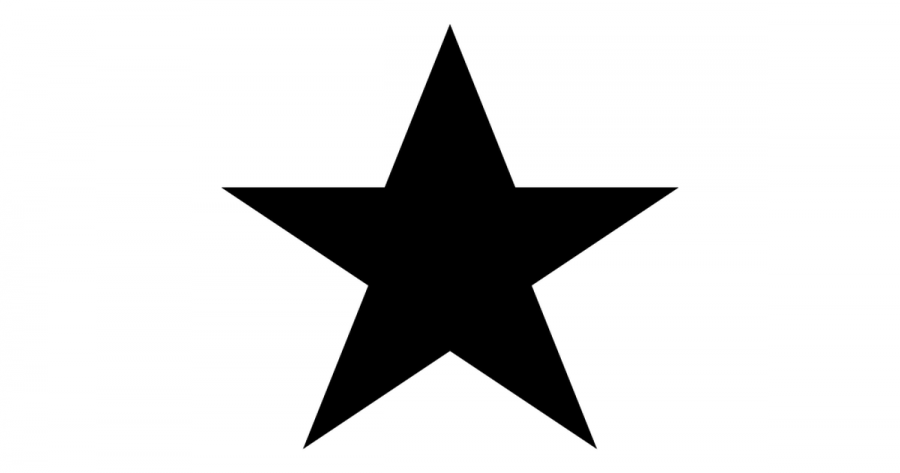
But I have got a horrible feeling that these authentic anarchists are, these days, very much in the minority.
My first inkling that all was not well with anarchism, and indeed the wider social movement to which it belongs, came nearly 19 years ago.
Up until that moment, everything had been going swimmingly well for me. I was inspired and delighted by the seemingly unstoppable tide of the global anti-capitalist revolt of which I formed a tiny part.
I should say here that I wasn’t at the great battles of Seattle, Prague or Genoa, although I was in the City of London on June 18, 1999 and at the subsequent Mayday events.
But missing out on all the “summit hopping” didn’t make me any less enthusiastic about the great revolution that seemed to be approaching.
My comrades and I made sure the inhabitants of our home town were well aware of what was happening across the world, via leaflets, bulletins, posters, meetings, protests and squatted infoshops.
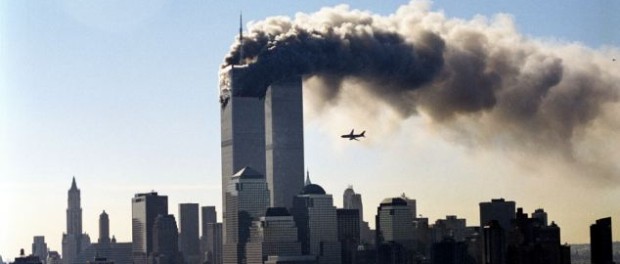
I am sure I was still feeling as motivated as ever on September 11 2001, as a group of us travelled to London Docklands to protest against the DSEI arms fair.
The demo ground to a halt when news started coming in of the attacks on the Twin Towers in New York and people rushed to the pub to watch TV.
We didn’t, of course, understand the implications of what had happened and initially welcomed it as another sign of the impending collapse of the evil empire.
The actual effect of 9/11 on our struggle only became clear to me a few weeks later when I was attending a meeting in the nearby city whose thriving anarchist scene was, to me and my friends, a constant source of inspiration.
Someone who had been very much part of the pink-and-silver-samba-bloc Zeitgeist of the uprising told me that she wouldn’t be doing that any more. It didn’t seem right, after the terrorist attack, to continue our carnival-cum-war against the USA and its world of capitalism.

I was completely taken aback by this comment. I simply couldn’t imagine how anyone – anyone on my side! – could have come to that decision.
Stop fighting against everything that was bad in the world because something else bad had happened, something that wasn’t our fault, that was nothing to do with us, that had no bearing on the reasons or the aims of our struggle?
My disappointment resonates now across the years, vibrating with the brave new world of 2020…
Fortunately, this wasn’t the end of the movement to which I had attached myself. It morphed seamlessly into the radical wing of the anti-war movement in 2002 and 2003.
The demos were less fun-based now, maybe, but the energy was very much still in evidence, together with a firmness of ethical conviction that was well able to withstand the weapons of mass deception unleashed by Blair, Campbell and Bush.
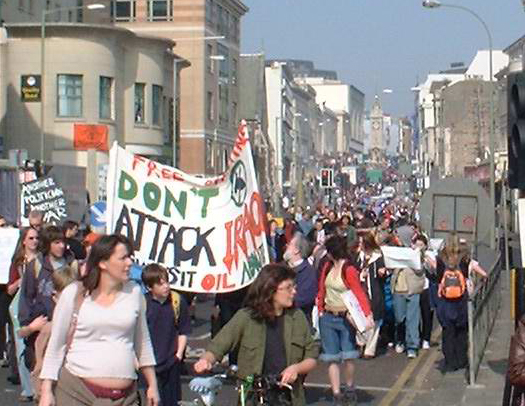
It wasn’t just anarchists who didn’t believe their lies, of course. Millions of people rejected their message of fear and took to the streets to say so.
The authorities hadn’t quite perfected their narrative projection in those days. They hadn’t properly closed down all the possibilities of dissent. But that still didn’t stop them from going ahead with the invasion of Iraq!
Another moment of disappointment for me came in the summer of 2005 during the anti-G8 mobilisation in Scotland, one which was strangely similar to that of 2001.
Once again our protests came to a halt, this time because of the 7/7 carnage down in London.
Once again something bad had happened somewhere else, something that wasn’t our fault, that was nothing to do with us, that had no bearing on the reasons or the aims of our protest.
Some people were saying we should call off the planned demos. Why? Why would we want to do that?
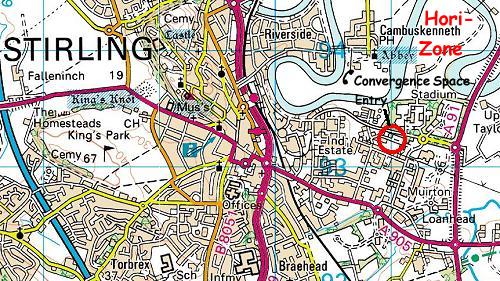
I recall that we broke down into barrio meetings to discuss what to do. Our group was certainly in favour of carrying on the mobilisation and I heard later that the same was true of others.
But, somehow or other, the non-leaders at the Stirling convergence space deemed that the democratic decision had been taken to throw in the towel. Their de-escalation team went into action to defuse all that inconvenient anarchist rage.
They must have diligently continued their work everywhere afterwards, because from that point on, there seemed to be decreasing levels of anger, and indeed, energy, in the UK movement.
The very idea of physically opposing global capitalist summits, which had so inspired me in the past, was now considered hopelessly old hat.
The 2013 Stop The G8 campaign was largely snubbed by what was left of the anarchist movement in the country and the London mobilisation would have been a total flop without the enthusiastic participation of European comrades.
Since then, the movement and its attitudes seem to have become progressively drained of the coherent and powerful worldview which drew me to anarchism as a young man in search of political and philosophical truth.
Every couple of years, a new fashionable obsession seems to have taken a grip, speaking a language I do not know in order to express views which are completely alien to me.
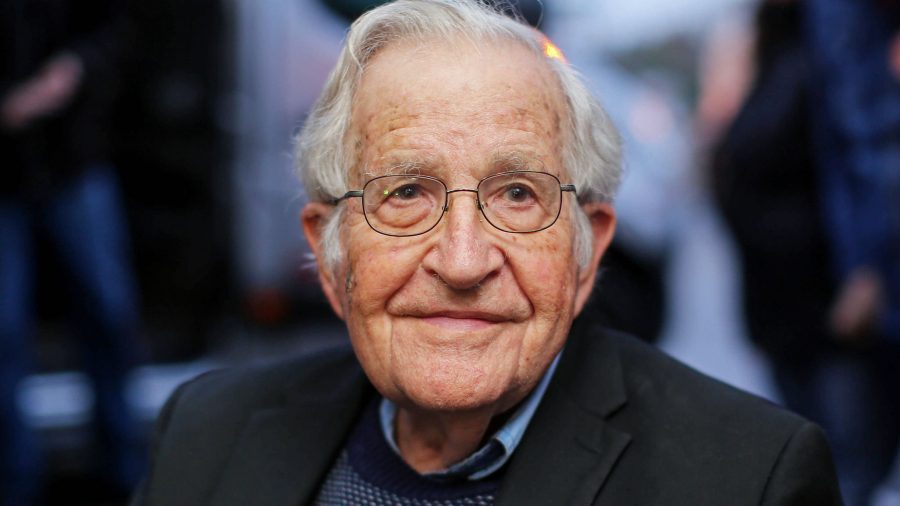
Noam Chomsky has spoken about the “incomprehensible gibberish that comes out of left-wing intellectual movements”, which he described as “just impossible to understand”. (1)
There are two obvious consequences to this relentless advance of the anarchist scene into an intellectual and political dead-end.
Firstly, the people it recruits will be those who are prepared to uncritically conform to its one-dimensional newthink, who are willing to surrender their own independence of thought and swallow what Chomsky called “the latest version of post-modern this and that”.
It now turns out, at this historical moment, that these are exactly the kind of people who are eager to accept whatever version of the truth is presented to them by authority figures.
They are also the kind of people who are eager to condemn and ostracise any old-fashioned anarchists who have the audacity to think for themselves.
I have noticed that, inevitably I suppose, they do so using the same reflexes and language with which they try to impose their dogma on their comrades.
The whole world becomes a “safer space” when they insist that you should not question martial-law lockdown because you could put others at risk.
When you point out that the virus is mainly killing those who are already sick or old, they declare that you are “ablist” and use their familiar shaming and accusatory tone in order to imply that drawing attention to the relatively low mortality rate is the same thing as welcoming the deaths of those who have sadly succumbed.
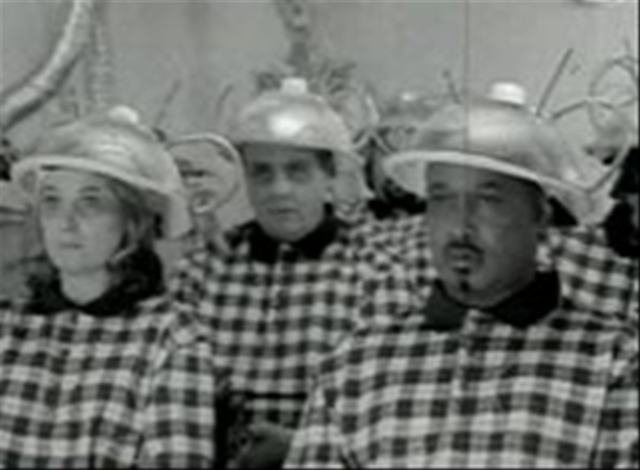
Someone saw fit to slip into his argument against my condemnation of the clampdown the fact that I am “white”, which apparently means my views on absolutely everything are hopelessly polluted by privilege and can happily be ignored by all left-thinking citizens. (He is also “white”, by the way).
The guilt-by-association smearing is pushed to the extreme. Whatever view you share which is critical of the panic and the global police state it has spawned turns out to be illegitimate because the person who expressed it is a believer in the wrong kind of freedom (see my previous post), or is an “anti-vaxxer”, or uses language or arguments that sound suspiciously alt-right, or has otherwise not earned the blue tick of ideological purity.
Their greatest magical weapon is, of course, the term “conspiracy theorist”. No sooner is it brandished, than all need to refute fact or engage logically is dispelled in a great puff of newthink smoke.
The argument has been won without even the need to address it!
The other side of the coin, the corollary to the take-over of the movement by zombie-anarchists, is the question of what has happened to all the born anarchists.
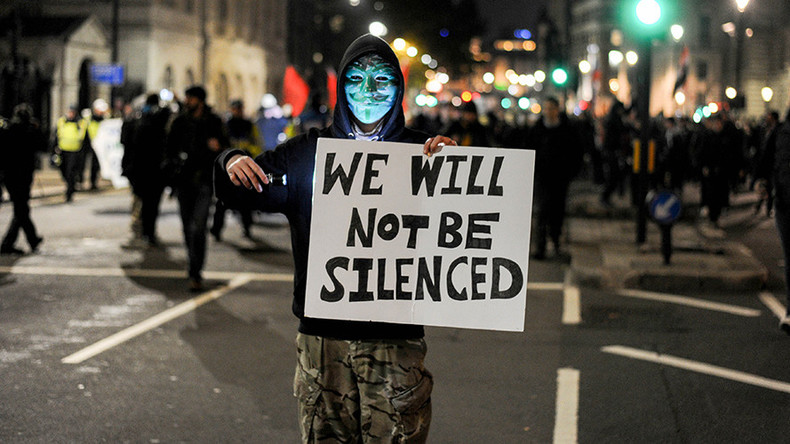
Chomsky’s comments came in the context of his concern that young people would be turned away from anarchism by the cult-like ideological fixations that are today so dominant.
It’s not even just the young. There are people of all ages who learn a little bit about anarchism, would like to find out more with a view to getting involved and so dip their toes into the water by turning up at an anarchist venue or event.
If they run a mile and never come back, what happens to them? And what happens to those who never even get that far, who get one faint whiff of the stifling intellectual claustrophobia via the internet and realise there is no place for them in that self-righteous and puritan little world?
I think they are still out there. They may or may not think of themselves as anarchists. They may use other labels or none at all. We don’t have to give ourselves labels.

But they are still anarchists, natural anarchists, the rebels who would have formed a strong and healthy anti-capitalist movement if it had not been sabotaged from within by the zombies.
They are the anarchists who would have stood up, in anger and en masse, against the coronavirus coup d’état.
These natural anarchists will keep emerging in each generation, because a love of freedom and truth is part of what it means to be human.
They may emerge and rise up now, straight away, in the face of this unprecedented global power grab.
Or it may happen later, when they have had a chance to reorientate themselves and find each other.
But we can be sure that sooner or later they will cast off their muzzles, unplug their chains and try to smash to pieces the slave-system which has stolen everything from them.
Because, after all, as Gustav Landauer (2) put it, anarchy is life. Where there’s life there’s anarchy. Where there’s anarchy there’s hope.
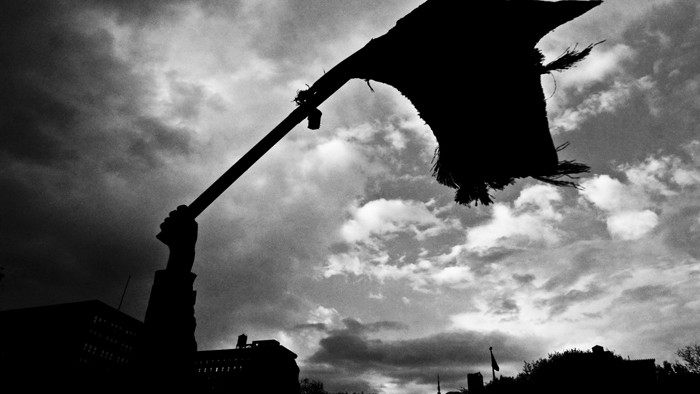
1. Noam Chomsky, ‘Anarchism, Intellectuals and the State’, Chomsky on Anarchism, ed. by Barry Pateman (Edinburgh, Oakland and West Virginia: AK Press, 2005), p.217.
2. Gustav Landauer, Revolution and Other Writings: A Political Reader, ed. and trans. by Gabriel Kuhn, (Oakland: PM Press, 2010), p. 74.
I agree with most of what you say but don’t you find it ironic that someone like Chomsky was one of the biggest supporters of lockdown policies at the beginning? He said something like “this has obviously worked in China”. I don’t know what his views are now, I prefer not to google him because it’s just depressing… Anyway, I’ve always thought of him as a social democrat. There are worse things to be, for sure, but you do not simply become an anarchist because you enjoyed reading Homage to Catalonia when you were a kid… I don’t know maybe I’m too tough on him. He’s old. Let’s just take whatever good ideas he’s given us and throw out the not so good ones
Almost everyone has let us down. The Leftist intelligentsia is in full dereliction of duty. Citizen Nobody has criticized Chomsky, so has Darren Allen, another anarchist COVID Skeptic. Check out this piece: https://citizennobodyblog.wordpress.com/2020/11/07/the-delusion-of-the-green-new-deal/
Thanks!